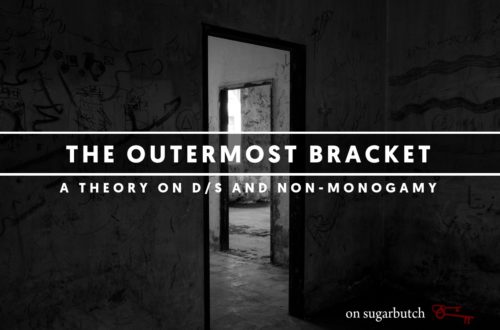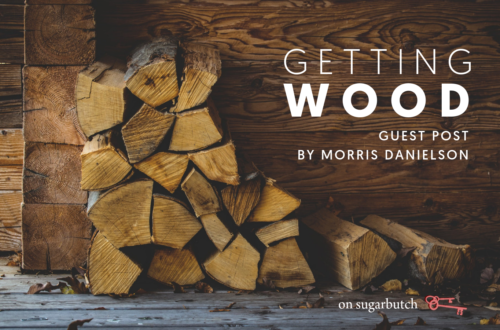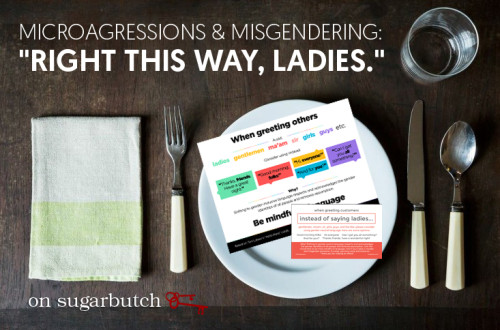This site contains explicit writings on kink practices, dominant/submissive relationships, and queer kink erotica (among other things). All characters in role play or non-consent scenes are consenting adults. Content warnings are included.
Parks Dunlap. parksdunlap.wordpress.com
1. What insight about polyamory/open relationships would you share with your younger self?
(I’m currently in my early twenties, so my younger self would be nineteen and stubbornly monogamous.) I would tell her, Working two jobs is not the way to be so busy you won’t form crushes on other people than your partner. You will still fall in love with about three people you shouldn’t have. Don’t get married just yet, but you’ll figure that one out. Nonmonogamy is not a quick fix solution, but it will feel a whole lot better than repeating, “you are monogamous. You are monogamous. Focus,” to yourself all the time. BDSM is a significant part of the reason you are nonmonogamous. And it is okay to want that. This is all going to be really hard, and it/s going to feel like you are starting over, but this is going to be magic, I promise.
2. What has been the hardest thing about navigating multiple relationships, and how have you overcome that?
The hardest thing about navigating multiple relationships has been acknowledging the shame that comes with wanting, with desire, and with breaking away from queer assimilationist relationship expectations. It is often hard to feel wanted, and to want. And it is really hard for me to trust that its okay to be a big slut. I’m from a conservative southern family, so rejecting and fucking within that socialization is hard work.
The other thing that is often hard checking my privilege and learning how to be an ally. This is a constant practice outside of and in relationships. I think that it is often hard to see my relationships as non-neutral ground, and see the way social structures affect my relationships. For example, a partner of mine does not have the hours to date other people because she works a full time job and goes to school full time. I have the class privilege that I do not need to work a full time job while in school. We have had to discuss the complicated feelings that come with this difference in our lives, and the jealousy that comes up when I have time, money, and energy to date and she does not.
I have not overcome either of these things, but I have found things that help. Asking for affirmation from my partners and poly friends helps with the guilt, and my two sisters are really supportive of my dating multiple people, which is super helpful. The privilege and ally thing is going to be something I work at my entire life. I have learned that shutting up when called in, and taking notes during those long processing conversations is really helpful. Google is also an excellent resource.
3. What has been the best thing about being open/poly?
How hard it is. It is constantly pinning me into a corner and forcing me to look at my own vulnerability. It has really helped me to grow as an individual. Also I really love playing the game of “when I grow up and have babies with all my queer poly friends what color are we going to paint the porch?”/having queer Dad house butch dreams.
4. Anything else you’d like to add?
I have been so impressed with the majority of queer poly folks I have befriended, worked with, and admired from afar. I think that poly done in a radical context can be serious political work. And if anyone ever has the chance to hang out with Joy Fairfield, who presented at this year’s Open SF conference, ask her about her Rhizomatic Intimacy lecture. I promise you won’t be disappointed.



